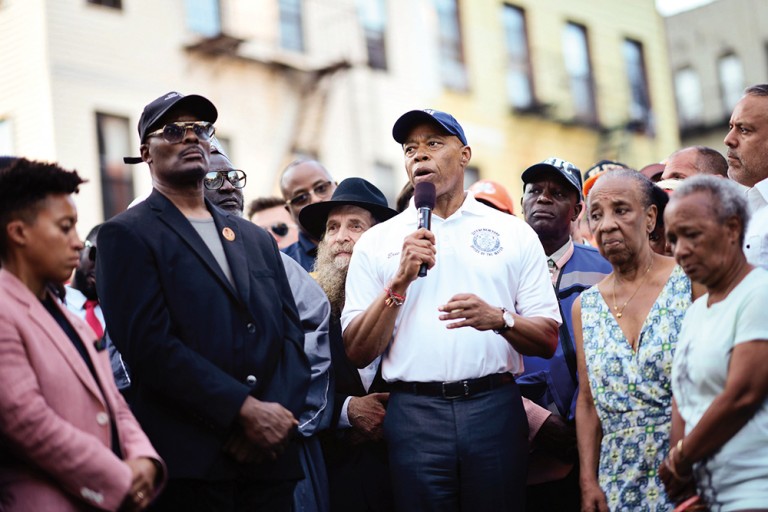By Forum Staff
Mayor Eric Adams on Thursday announced a new legislative change he is proposing in the 2026 State legislative session that would authorize involuntary commitment for substance use disorder.
The “Compassionate Interventions Act” will give clinical professionals the authority they need to bring someone who appears to pose a danger to themselves or others due to substance use disorder to a hospital and allow a judge to mandate treatment if the person is unwilling to enter treatment voluntarily. The change would help put New York in line with 37 other states that already have a similar law on the books.
Under New York law, involuntary removal to a hospital for evaluation requires that a person “appears” to be mentally ill, as well as dangerous, and for the person to later be admitted to the hospital for treatment, a clinician must diagnose a mental illness likely to result in serious harm to that person or to others. The law does not allow involuntary transport of a person who poses a danger to themselves or others due primarily to substance use disorder. This prevents involuntary admission in the many cases where a person does not appear mentally ill but presents a significant danger to themselves or others due to an untreated substance use disorder.
Additionally, Adams announced a $27 million investment focused on improving access to substance use disorder treatment through outreach and enhanced treatment strategies. The plan will add more teams on the ground dedicated to engaging people struggling with substance use, enhance back-end coordination of care across outreach teams, and launch new programs to keep people engaged in treatment once they start.
This Contingency Management Plan will feature a pilot program called ‘Track to Treatment,’ which utilizes contingency management, a treatment approach that provides existing patients with small rewards for positive behavior, including engagement in addiction care.
“We want every New Yorker to know about the work we are doing to change the culture around quality-of-life issues, including our efforts to update laws that too often prevent people with severe mental illness from getting help and support,” Adams aid. “Addressing public health and public disorder is at the core of what New Yorkers rightfully expect from their city government. New Yorkers must be able to go about their lives without having to court chaos and dodge disorder at every step. Most importantly, we must stop leaving behind the New Yorkers most in need, because when anything goes, nothing is possible. Ending ‘anything goes’ means more than changing the culture; it means changing the reality of how we support those in crisis. It means making the investments necessary to support outreach, harm reduction, wraparound services, and housing — services that make lasting impacts in lives and communities.”
Tom Harris, president of the Times Square Alliance, added, “Understanding addiction should not be criminalized should not mean anything goes in our city; we cannot continue to allow those suffering from addiction to wander our communities endangering themselves and others. Compelled treatment for addicts will save lives, prevent overdoses, reduce incarceration, [and] give families options for helping loved ones.”

